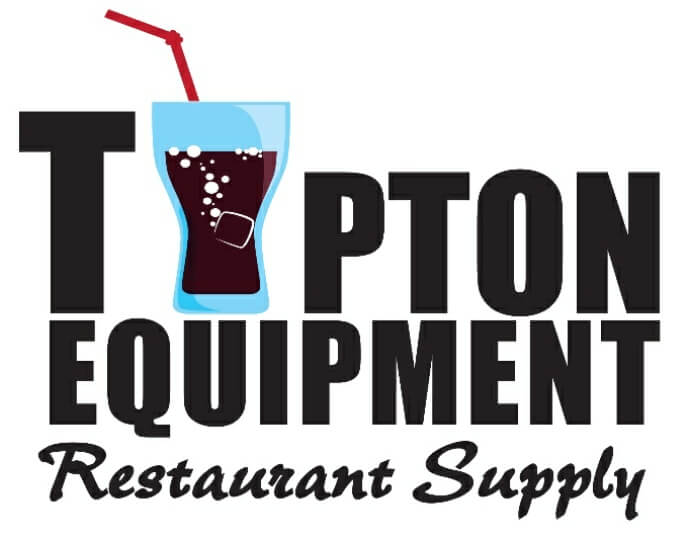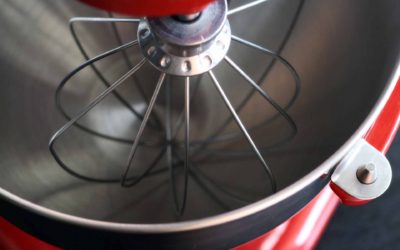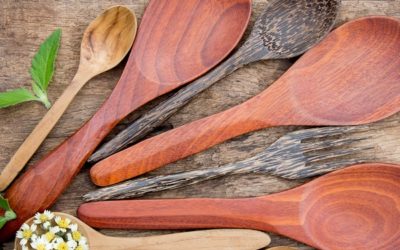Tips to Clean Cooking Equipment: Commercial Oven
June 20, 2019After having purchased your commercial oven, you’ll want to make sure that you maintain it in good condition to prevent costly repairs.
Always read the owner’s manual of your oven for the specifics on how to properly maintain the oven, but also, don’t be shy about approaching your supplier with questions about your new cooking equipment. Most suppliers are happy to offer post-purchase information as they have an intimate knowledge of the products they sell and have likely dealt with faulty, broken, and ill-maintained products in the past.
Spills
Wipe up spills inside the oven immediately. Acting fast will prevent the discharge from becoming baked on the surface of the cooking equipment and more difficult to remove later. The spill can also affect cooking temperatures.
Interior
Clean the oven interior every day. Generally, commercial ovens can be cleaned with a mild detergent soap, check your owner’s manual for its recommendations. Soak oven racks in a sink while wiping out the oven interior. Clean and rinse the trays before reinserting them in the oven.
Exterior
Once a week, clean the surface of the commercial oven. Use a mild soap and a soft bristle brush to clean stainless-steel finishes. Abrasive cleansers and scrubs can damage the finish and cause the exterior of the cooking equipment to corrode.
Perform a deep cleaning each month. Check your owner’s manual for recommended cleaning chemicals for your commercial oven.
Cleaning Your Commercial Oven
The first thing to do is check to make sure the commercial oven is off. If it is off, you should be sure to check that it has been apart long enough for the inside of the oven to be cool enough to touch. If they are, you must first take the racks out of the cooking equipment. These will be washed separately and will only get in the way when you are cleaning the inside of the oven.
Next, you should spray the inside of the oven with cleaner. All surfaces of the ovens should get sprayed. Include all sides, the top, the bottom, the inside of the oven door, and even the coils. The oven cleaner that you have will have its instructions for how long it should set, so be sure to read the directions and follow them. While the oven cleaner sets in the oven, you can use warm soapy water to clean off the racks. Once the oven cleaner has set for the correct amount of time, you should wipe the soap off using the old and then put the trays back in the oven. As a finishing touch, you can use a damp towel to wipe off the outside of the oven, and then you are finished.
It’s best not to let your commercial oven or any cooking equipment that is used regularly go without daily cleaning.
5 Keys to Creating the Perfect Restaurant Seating Areas
Restaurants are about so much more than just food. From the setting and layout of your restaurant to your choice of colors, it takes a lot more than an appealing menu to keep diners coming back for more. When setting up your restaurant, booths and chairs are important...
5 Essential Buying Tips for Your Next Food Prep Work Table
The right foodservice equipment is pivotal to the efficiency of your kitchen. One of the most important types of foodservice equipment for any kitchen is the work table. With limited room on countertops available for your food prep needs, the cooking process can drag...
Tips for Keeping Your Commercial Sink Sparkling Clean
Your commercial kitchen, just like your personal kitchen, must be kept clean at all times. With all of the cooking and food processing you do, it is inevitable that your sink gets messy. Cleaning up your commercial kitchen is incomplete without proper cleaning of your...
Food-Cutting Secrets to Beautiful Dishes
In the restaurant industry, presentation is often said to be just as important as the food itself. Using the right knowledge, skills and restaurant supplies, you can incorporate creativity into your presentation, making guests feel that they are getting something...
Top Space-Saving Tips for Commercial Kitchens
Top Space-Saving Tips for Commercial Kitchens Space is always an important consideration when setting up a kitchen, and this is even truer for commercial kitchens. With a strong focus on functionality and the kitchen supplies that meet the needs of your commercial...
5 Ways to Get the Most Out of Your Mixer
No one wants to eat off of dirty or tarnished silverware. A stand mixer is a highly useful piece of kitchen equipment to invest in. Although this type of kitchen equipment does not usually come cheap, it can last a lifetime when properly cared for. Despite all your...
Restaurant Prep Tool Selection Simplified
What’s a restaurant kitchen without high-quality prep tools that can withstand the pressure of frequent use? Whether you already have a restaurant you’re running, or you’re just planning to launch one, one vital factor that could make or mar your business is how you...
Beginner’s Guide to Choosing a Commercial Ice Cream Freezer
Ice cream is a delicious and appealing desert treat for everyone, young or old. Having made the decision to sell ice cream to your customers, whether you have a restaurant, convenience store, or specialty ice cream parlor, it is time to begin stocking up on the right...
How to Choose the Right Kitchen Scales for Your Restaurant
A food scale is an essential item in every restaurant’s store of kitchen supplies. Designed to take the guesswork out of food measurement and maintain consistent food serving sizes, food scales are indispensable kitchen supplies in the commercial kitchen. With such a...
Beer Chilling Systems: Which Type Is Right for My Restaurant?
A refrigeration unit is integral to the functioning of any restaurant. Beers are best served cold - there’s no questioning that! But which beer chilling system is the best? From reach-in coolers to glycol chillers, a beer chilling system is an important piece of...
What Equipment Will I Need to run a Food Truck?
There’s a lot of planning that goes into starting your own food truck business. Before you hit the road with your delicious food offerings, you’ll need to fill up your truck with all the right foodservice equipment. Considering the lengthy list of possible items to be...
8 Types of Food Thermometers: What You Need To Know
Food thermometers are essential restaurant supplies for your commercial kitchen. They ensure that foods prepared in your commercial kitchen are cooked to the right temperature and held at that temperature for as long as necessary to kill any harmful bacteria. This...
How to Identify the Best Food Processor for Your Needs
Highly versatile and extremely efficient, food processors are designed to take away the hard work from repetitive kitchen activities. This type of cooking equipment can quickly become an invaluable tool in your kitchen. From chopping, to shredding, grinding, mincing,...
6 Keys to Choosing the Best Chafing Dishes for Your Restaurant
The chafing dish, also known as the chafer, is an essential piece of restaurant equipment for any establishment that wants to keep food hot. This type of restaurant equipment gets its name from the French word, chauffer, which means to heat, and it’s easy to see why....
Turning up the Dial on Commercial Fryers: How to Choose One for Your Restaurant
Fried food is a well-loved favorite. This is a fact. It also makes a fryer an important piece of equipment to have in your commercial kitchen. Just consider how many appetizers and sides require frying: onion rings, French fries, and fried green tomatoes are just a...















